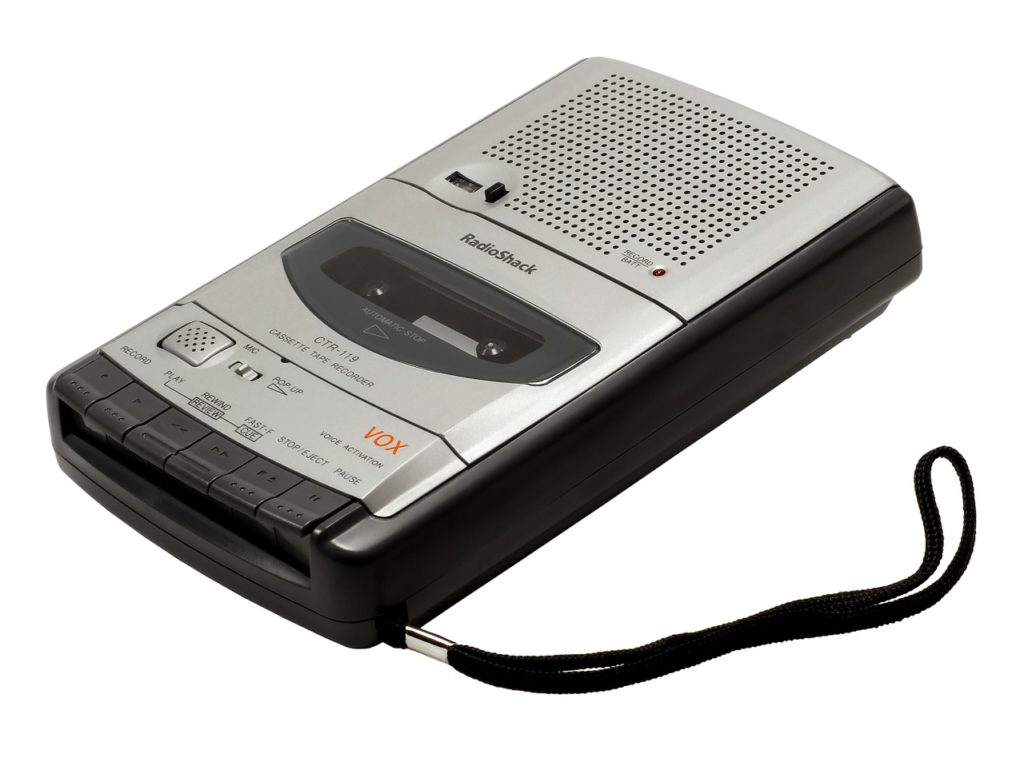
Event Management Software Features to Get Your Act Together
The live music industry is experiencing a renaissance. With a staggering 25% growth rate in 2023 and projections indicating revenue will surpass $50 billion by 2030, the sector is poised for unprecedented expansion. This surge creates exciting opportunities for industry professionals, but it also raises the bar for performance and efficiency.
In this high-stakes environment, managing live music events demands precision and agility. As technological advancements reshape the landscape, audience expectations are evolving rapidly. The question isn’t just whether you can keep up with these changes but how you can leverage them to stay ahead of the competition.
While numerous apps and tools promise to streamline specific tasks, juggling multiple platforms can lead to inefficiencies and potential oversights. The solution? An all-encompassing event management platform that consolidates essential functions into a single, user-friendly interface. By adopting such a system, industry professionals can maximize their productivity and maintain a competitive edge in this rapidly growing market.
Time is a precious commodity in live music planning. Those who harness the power of comprehensive event management software can accomplish more with fewer resources, positioning themselves at the forefront of this dynamic industry. Let’s explore the key features that can transform your event management practices and propel your business forward in this exciting era of live music.
Top Event Management Software Features to Have on Your Checklist
To pick the right software, live-music planners must remember a basic principle: New tech should make your job easier, not harder. While using a combination of apps might help you evolve beyond outdated methods, more efficient options can integrate features into one easy-to-use platform that keeps all your tasks organized and convenient.
However, not all options are the same. Software providers offer diverse features and functionalities, have varying pricing structures, and come with differing levels of customer service. With such a wide range of options, it can be difficult to know what to look for and how to understand what will effectively improve your business operations.
Ultimately, the best way to understand which features offer a path forward is to carefully examine the applications you rely upon and seek those functionalities in an industry-specialized platform. Consider the following essential tasks and duties:
- Communication while keeping everyone on the same page
- Schedule management between multiple events, venues, and artists
- Collaboration with various team members and roles
- Tracking of deals, bookings, and payments
- Financial reporting for insights and decision-making
- Managing settlements, including offers, estimates, and actuals
Your software should be a reliable assistant that can help you manage settlements and generate reports much faster than before without adding security risks. Here are some of the most important features to consider when choosing music event management software.
Advanced Calendar Management for Music Events
A business that revolves around live events needs a reliable, intuitive, and interactive calendar. Only with adequate management will you have the information you need when you need it.
Think about a time when you were on the go and your calendar was in the office or on your laptop at home. As a result, you might have told an agent or promoter you’ll get back to them later. If this trend continues, the stakeholder will likely move on to a more prepared competitor. Live music event management demands the ability to be productive whether you’re at your desk, on the road, or backstage at a live show.
Investing in a platform with an integrated event management calendar gives you access to all relevant information, no matter where you are. Look for event management software features that enable you to manage holds for venues, shows, and markets all in one place. A calendar that’s easy to use with multiple devices (including your mobile phone or tablet) means you’ll always have the information you need in the palm of your hand. The calendar should allow you to add multiple dates quickly and generate customized views based on filters.
Communication Tools for Improved Collaboration
Whether you have dozens of people on your team or just a handful of staff, immediate communication and effortless collaboration are essential. Outdated communication processes can set you up for failure. For example, when the average professional receives over 120 emails every day, this outdated method isn’t the ideal option to ensure a recipient gets your messages promptly.
Your music event software needs robust collaboration capabilities to allow your team to work together in one place while controlling access to sensitive information. A variety of event management software features can enhance communication and collaboration within a single platform.
While direct communication is vital to sharing information, access to documents, data, and information is also crucial. Consider the differences between accessing information directly and contacting a third party for the same information. A delay while you gain access to the relevant information can mean missed bookings or even interrupting a live show.
Related: Live Music Industry Trends: 10 Trends Shaping the Future
A modern event management platform should include features that enable direct communication and document sharing for enhanced collaboration. Look for software that allows staff members to access information relevant to their roles and communicate in real time. A leading solution with built-in approval for confirmations, challenges, budget adjustments, offers, and settlements is the easiest way to make sure you keep operations running smoothly and never miss a detail.
Security and Privacy
While the internet and instant connectivity have opened up a realm of convenience, data security is a vital and ongoing concern. Music professionals often need to maintain compliance with industry standards and meet stakeholders’ expectations with security features that keep personal information private.
Third-party security apps meet modern standards but don’t always align with industry practices. A single mistake could lead to a breach that impacts everyone on your team and professional contacts. Such an incident might ruin your reputation and cost thousands in non-compliance fines. Luckily, modern event management software features include improved security, monitoring, and backup systems.
Seek a platform with a robust permission system that meets SOC 2 standards to ensure data remains private. To maintain adequate data security, software should leverage a web application firewall, encrypt sensitive data at rest and in transit, and automate routine testing to identify potential issues and develop solutions before problems occur. Look for a software provider who takes a proactive approach when it comes to your organization’s privacy and data security.
Customizable Permissions
Collaboration is vital to live event management, yet every interaction can put privacy at risk. Even when you have a platform with all the right security protocols in place, your team’s actions can potentially expose personal data.
Lost devices and phishing scams can lead to mistakes that unintentionally expose company data. Limiting the potential for data theft requires minimizing unnecessary access to sensitive information. Event management software that features customizable permissions allows you to tailor the information each team member sees based on their role. It aligns with the principle of least privilege to ensure the fewest number of individuals have access to sensitive data.
A platform with customizable permissions and access allows you to take control of who can see data based on their job requirements. While you might trust every member of your team, a single mistake can allow threat actors to gain access to all of your organizational information. By limiting access, you can decrease the number of devices with access to sensitive data. Depending on the size of your events, this approach can dramatically reduce your threat exposure.
Aligned Task Management
Music event management demands effective task completion in a dynamic and varied environment. During the most critical business periods, your team isn’t sharing office space or gathering around a conference room table. However, the ability to stay on the same page and keep tasks aligned is crucial. When changes in schedule, planning, or other elements of a show arise, every member of the team needs up-to-date information to seamlessly adapt and accurately respond to the situation.
Related: How to Find the Best Venue Management Software: Your Backstage Pass to Success
Music event management software that acts as a one-stop hub for seamless organization and alignment ensures your team is always working with the most relevant and up-to-date information. With a database that provides a central source of truth for every aspect of an event, your team can stay on top of everything with ease. Since every team member works from a centralized system, tasks are automatically aligned, allowing you to pull off a seamless event.
Document Storage
Documentation is the difference between chaos and structure in a live event. Schedules, bookings, contracts, payments, and reports allow you to keep track of all the working parts of a single show and how your business works over time. When you use separate programs to track financial data, organize schedules, and settle shows, information silos can limit your insights and lead to missed opportunities.
A comprehensive platform with central document storage allows team members to upload relevant documents and access various types of information and data as needed. When you add AI-powered event management software features to the mix, you can automate payment tracking and generate reports that help you maintain an overview of each show, tour, and festival to gain valuable insights into the financial performance of your operation.
When comparing event management software solutions, look for features designed to store documents in a single location with an effective search tool that makes every form easy to find.
Industry-Oriented Software that Consolidates all Essential Functions
Many off-the-shelf solutions advertise their ability to work for any type of event, such as weddings, conferences, parties, and live music shows. But the one-size-fits-all approach rarely works the way you expect. When you go this route and choose an overly broad solution, you end up with many features you’ll pay for but never use. These functions often aren’t extensive or specific enough for your business needs, so you will likely have to complement them with other programs. As a result, you spend more resources, and your team is likely to suffer from the hassle of app overload.
If you’re managing live music events, the right software solution should be built specifically for live music professionals. An increasing number of industry pros find generic event management software inefficient and frustrating while keeping them scrambling through multiple sources to stay on top of their event data. They also give up the competitive edge they’re looking for.
A comprehensive software solution designed for the music industry creates a central source of truth and provides your team with seamless organization and alignment. When you’re not forced to juggle different tools for booking, running a show, and handling contracts and payments, nothing falls through the cracks. Every team member can see the information relevant to their duties and communicate through the platform to stay informed about issues as they arise.
Choose Efficient and Effective Live Music Event Management Software Built for the Industry
Live music events have many moving parts and even more requirements to pull everything together. The details of booking venues, managing ticket sales, and coordinating with artists must be effectively handled for perfect alignment. The right platform contains event management software features to help streamline and organize every aspect of live events. It can assist you in taking care of all tasks, from booking venues to managing finances.
It’s an excellent time to be in live music, but only tech-enabled industry pros will be able to fully realize their potential and stay ahead of the game. Modern technology can lead to higher productivity and a larger overall footprint, letting agents and managers focus on what led them to the business in the first place.Prism was built by music professionals, for music professionals. Our industry-specific software allows you to manage everything that matters most in one place. Your music business can benefit from increased profits, optimized resources, and improved competitiveness. Book a demo today to see firsthand how our platform can help you and your team get your act together with less effort.

Matt Ford is the founder and CEO of Prism.fm, an Austin-based software company revolutionizing live music event management. With a background in entrepreneurship and a degree from the University of Wisconsin-Madison School of Business, Ford combined his self-taught coding skills with firsthand experience as a concert promoter to address the inefficiencies he observed in the industry. In 2018, he launched Prism.fm, an all-in-one platform designed to streamline operations for venues, promoters, and agencies by replacing cumbersome spreadsheets with integrated tools for booking, financial tracking, and contract management. Under his leadership, Prism.fm has grown significantly, achieving $3 million in annual recurring revenue post-COVID and securing over $15 million in funding . Ford’s commitment to building user-centric solutions has positioned Prism.fm as a trusted partner for over 1,500 venues and promoters worldwide.



